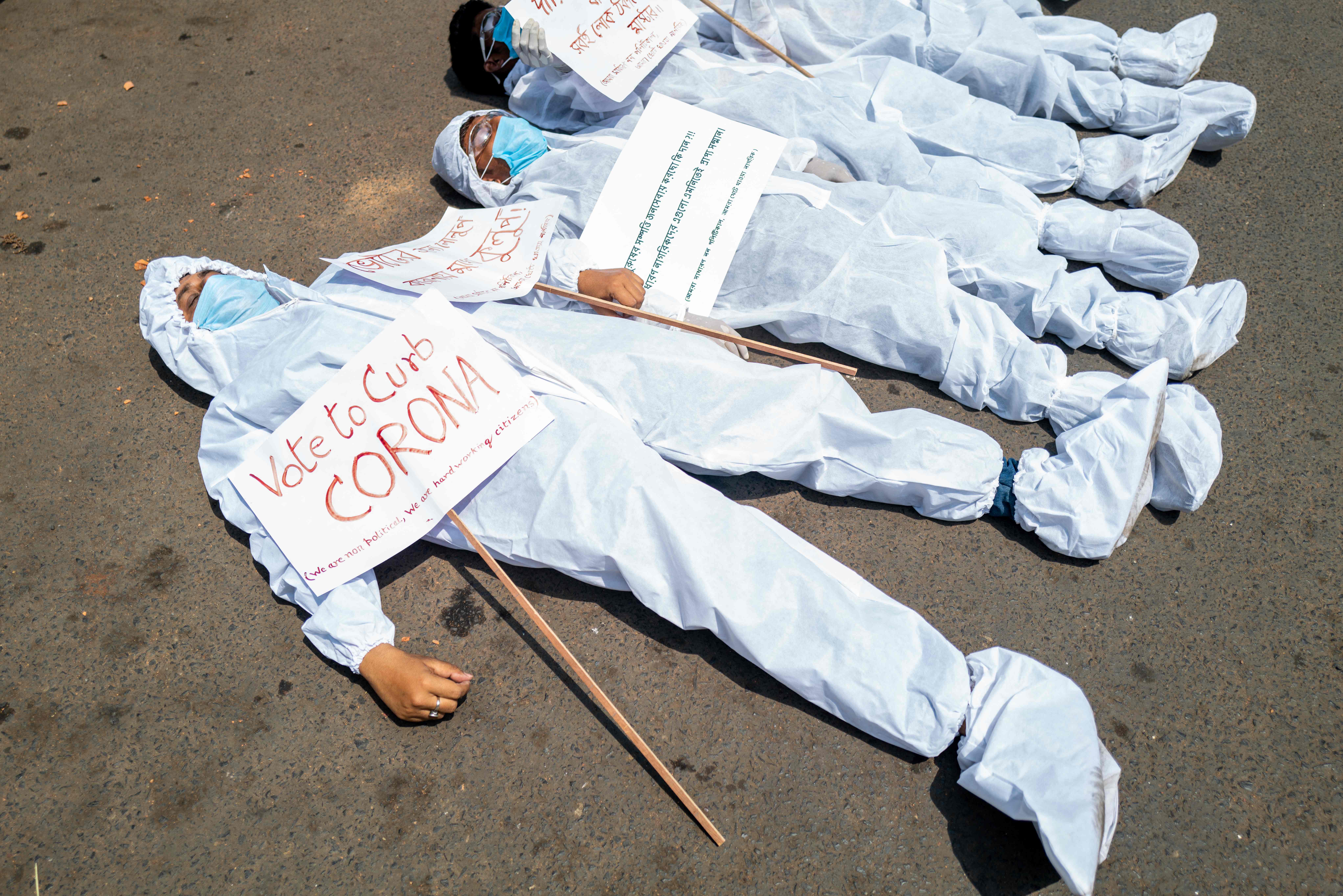India records highest daily spike of 115k Covid cases as worst-hit state reports urgent vaccine shortage
Officials in India described the situation as ‘very, very critical’

India recorded a highest daily spike of 115,736 fresh coronavirus cases on Wednesday, while the worst-hit state Maharashtra raised alarm over vaccine stocks running very low.
The situation was described as "very, very critical" by the Indian government, as more states imposed restrictions to break the chain of transmission.
India has now recorded 12.8 million cases and 166,177 deaths.
The pandemic has risen to alarming levels in much of the nation, especially in the second-most densely populated state of Maharashtra, as some hospitals suffered dwindling bed space, oxygen shortages and morgues running out of space.
On Wednesday, Maharashtra health minister Rajesh Tope warned of a vaccine shortage, saying stocks would only last for three days.
Read more:
- Artwork damaged by couple who thought brushes and paint in front of piece were for visitors’ use
- Sri Lanka national beauty pageant winner injured on stage as rival tries to steal crown
- Man dies after police ordered him to do squats as punishment for breaking Covid curfew rules
- India coronavirus: Daily cases surpass 100,000 for first time as country faces surging second wave
“We do not have enough vaccine doses at multiple centres. Health workers are now turning away many people. We cannot afford to slow down the pace of vaccination. We need to generate immunity in population and we are ready to vaccinate up to 5 lakh or even 6 lakh people a day,” Mr Tope said.
Maharashtra has remained the worst-hit since the beginning of pandemic and accounted for the highest number of Covid cases at 58 per cent as well as deaths at 34 per cent, according to official data.
Chhattisgarh, Telangana, Odisha and Haryana also flagged vaccine shortages to federal health ministry during the week as cases continue to rise, in a sign that situation is spiralling out of control.
But union health minister Harsh Vardhan swiftly shut down claims of shortages on Wednesday, claiming central government would “not allow any state to face vaccine scarcity”.
Virologist Shahid Jameel told The Independent that more cases are being seen in the affluent areas of cities and said vaccines should be deployed in an effective manner in areas where there is a big surge.
“We can go slow on vaccination in the areas where there is less caseload and open the drive to more in places where infection is heavy if vaccine availability is an issue,” he said, adding the situation is “worrisome.”
Health officials noted that the situation has worsened.
"The impact of the pandemic has increased in the country. Warnings were given that the situation should not be taken for granted," Dr VK Paul said.
He raised alarm over the deteriorating situation in Punjab and Chhattisgarh, saying death numbers being reported here are a cause of “extreme concern.”
Adar Poonawalla, head of the Serum Institute of India (SII), the world’s largest manufacturers of vaccines by doses, cast further doubts on India’s vaccine efforts by saying its production capacity is "very stressed".
India has been supplying coronavirus jab to countries around the world.
The second wave of the virus India comes as crowds gathered in election rallies and celebrated festivals after the virus slowed down at the beginning of the year.
Meanwhile, the Indian states of Chandigarh, Karnataka and Punjab are the latest to announce restrictions on Wednesday.
Chandigarh imposed a night curfew, following Delhi, from Wednesday from 10pm to 5am.
The health ministry claimed that India has passed the US to become the fastest country in vaccinating people with an average daily rate of 30,93,861 vaccine doses. As of 7 April, about 87 million doses have been administered.
Join our commenting forum
Join thought-provoking conversations, follow other Independent readers and see their replies
Comments
Bookmark popover
Removed from bookmarks